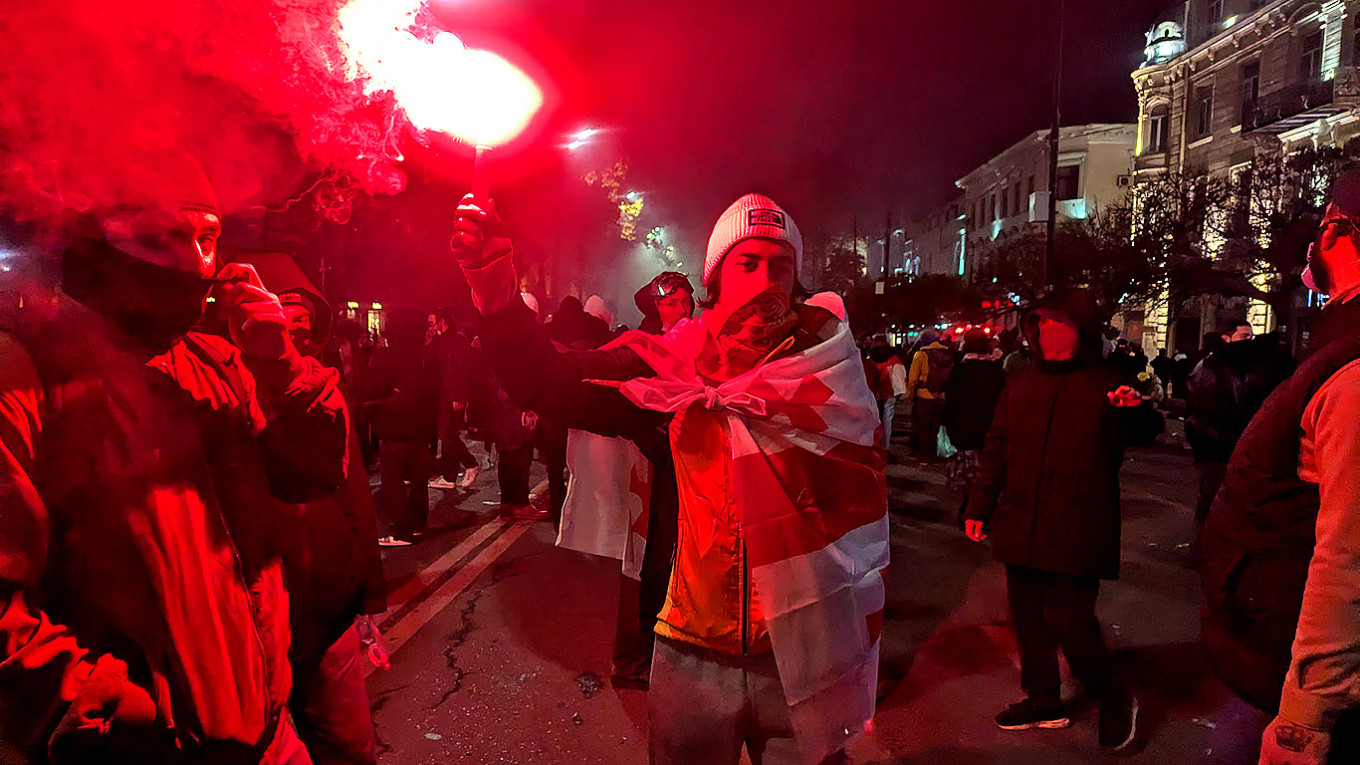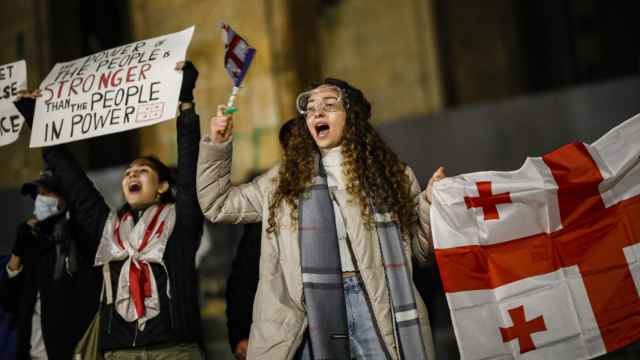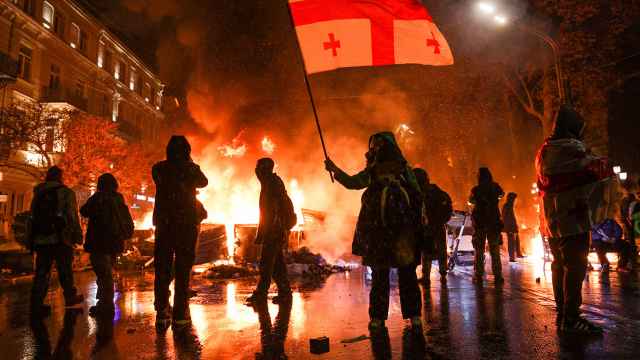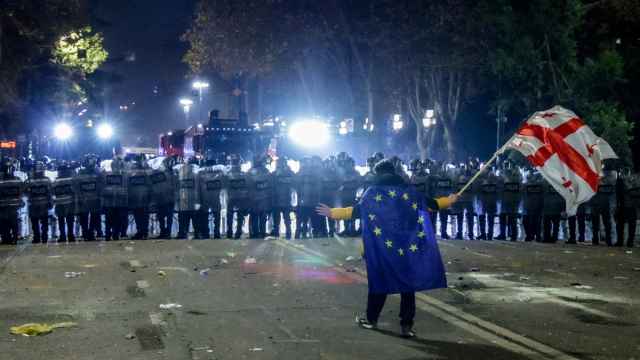TBILISI, Georgia — Riot police, tear gas and smoke grenades: this is what the streets of the capital of Georgia — a South Caucasus republic at the crossroads of Europe and Asia — look like on the sixth consecutive day of mass protests.
This country of 3.7 million people has for months been mired in a simmering political crisis between the ruling Georgian Dream party and the opposition that many see as a choice between a European future or appeasing its powerful neighbor Russia.
Mass riots broke out across the country last week after Prime Minister Irakli Kobakhidze announced that the government would table EU accession talks until 2028.
Relations between Moscow and Tbilisi have been tense since a five-day war in 2008 and Russia’s backing of Georgia’s breakaway regions of Abkhazia and South Ossetia. Now, demonstrators accuse Georgian Dream of attempting to re-align with Moscow at a time when polls say the majority of the population favors EU membership.
For pro-EU Georgians — including Georgians and Russians who left Russia following the Kremlin’s 2022 invasion of Ukraine — the prospect of Moscow’s creeping influence over the country is also a serious concern.
“I think Russia indirectly influences the actions of the Georgian Dream party,” Daniil, a protester with Georgian and Ukrainian heritage, told The Moscow Times.
"I fear a potential military intervention from Russia if civil unrest intensifies. That would be the scariest thing. I also feel that I'd be partly responsible for this due to my involvement in the protests," said Daniil, who was raised in Moscow but now lives in Tbilisi.
"But I don't think this factoring in directly now, nor is it sufficient grounds to not take part," he said.
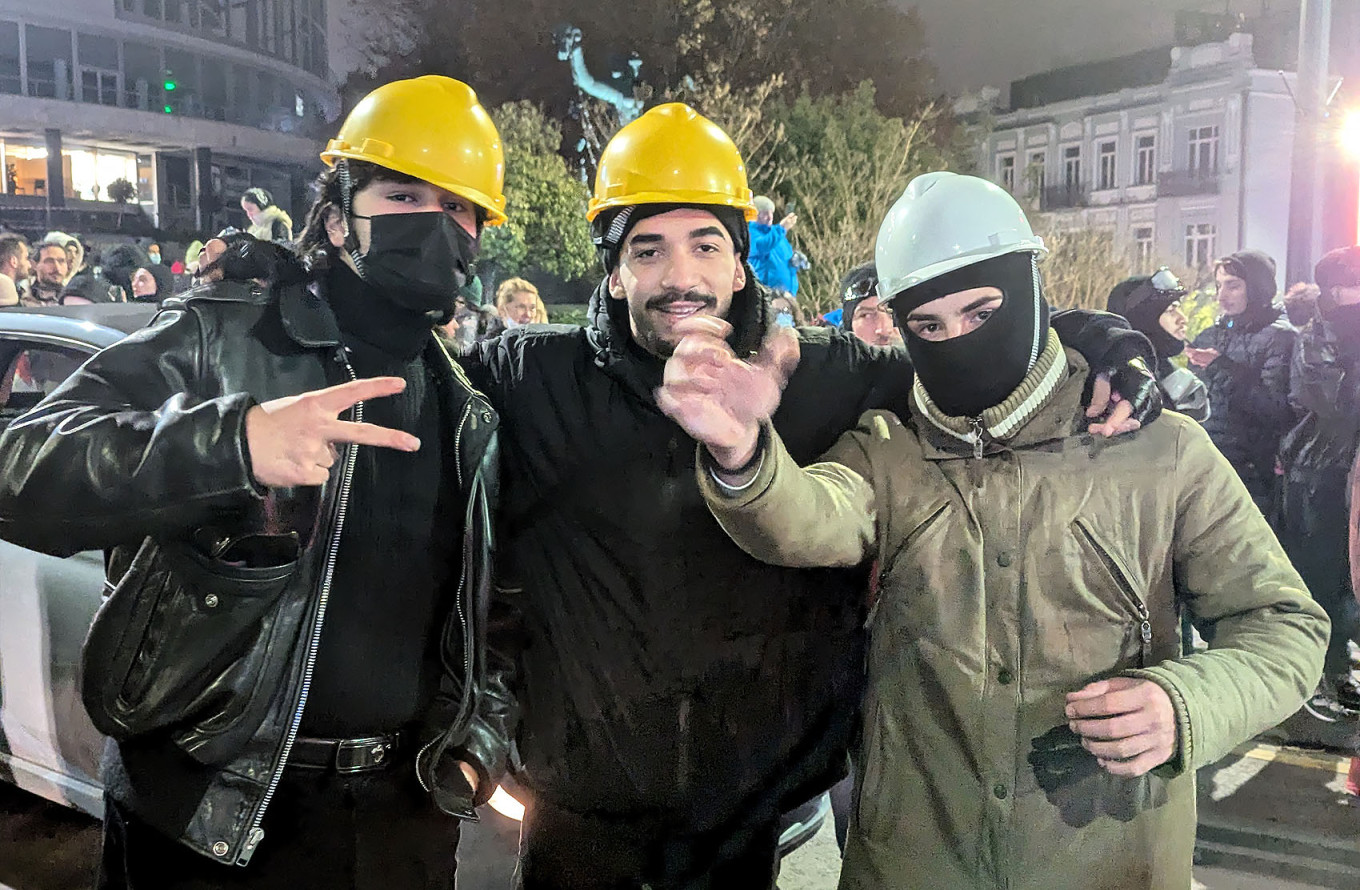
“Until 2022, I didn’t like alarmists, but since then, I’ve come to understand their logic fully. In the case of Russia, it’s better to adopt that mindset than to hope things will just work out,” he said.
The Moscow Times spoke with other ethnic Georgians who — like Daniil — grew up in Russia but returned to their homeland after 2022.
Some expressed a sense of hopelessness, anxiety and fear that Georgia is at risk of descending into what they say they experienced in Russia when the Kremlin intensified its crackdown on dissent.
Fears of wider political unrest have intensified since the passage of the so-called transparency of foreign influence law and Georgia’s Oct. 26 parliamentary elections, which were dubbed as crucial by both Georgian Dream and the opposition and were widely viewed as “a referendum” between Europe and Russia.
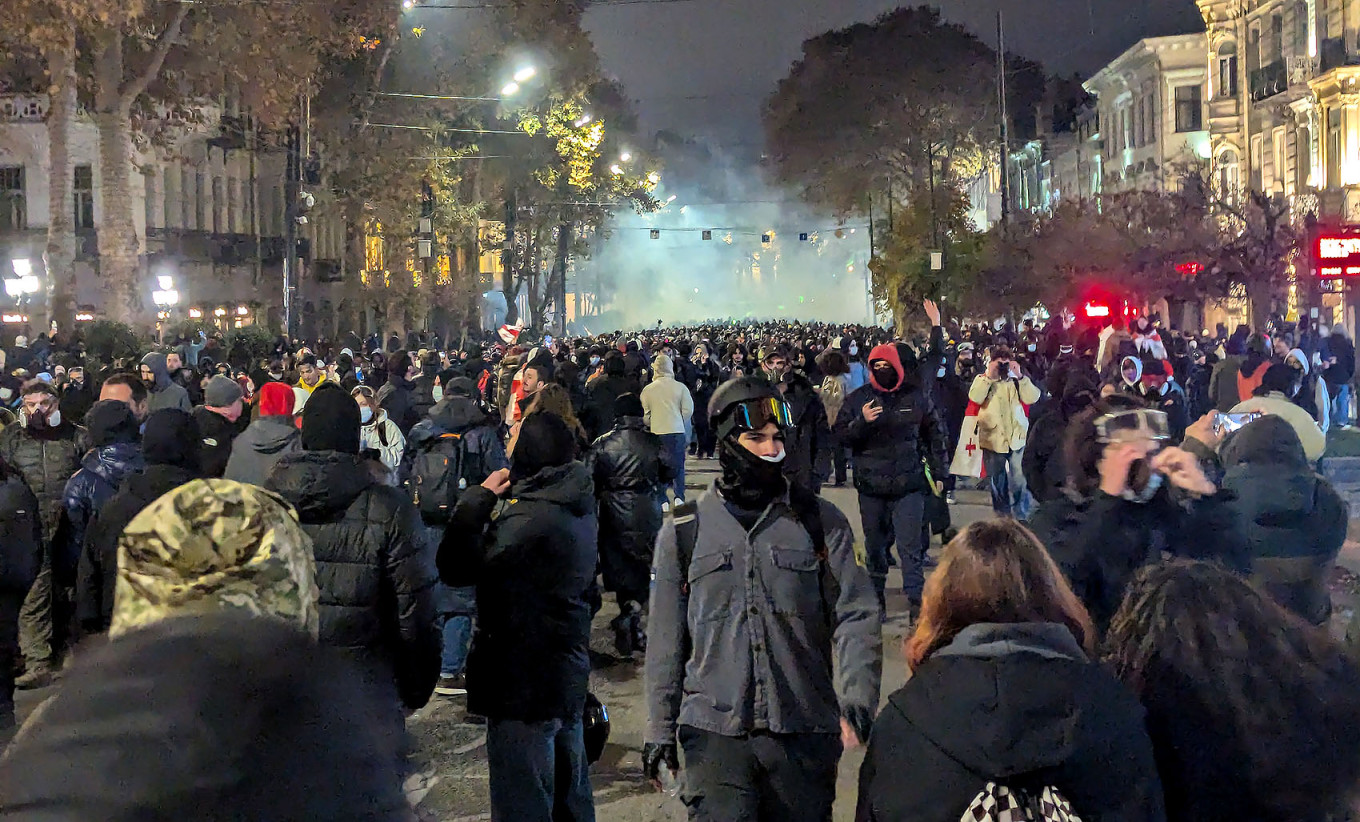
Critics allege that Georgian Dream’s victory in the election was fraudulent.
Since then, the protests have turned violent, with brutal detentions, injured demonstrators and even gunfire and grenade exchanges between protesters and the police.
At least 293 people have been detained and at least 147 people, including police officers, have been hospitalized since the start of the protests on Thursday. Police used tear gas and water cannons against thousands of demonstrators who responded by shooting fireworks and throwing rocks.
Georgia’s Public Defender accused police of “torturing” protesters as law enforcement officers “used violent methods against citizens for the purpose of punishment.”
Violence on the streets of Tbilisi is not the only thing troubling the people of Georgia.
“For me, the most terrifying scenario seems to be if Russia attempts to send military or security forces to intervene in the current situation,” said Salome, 35, who moved from Moscow to Tbilisi and is now volunteering by handing out hot coffee, tea and soup to protesters. Salome asked that her name be changed for safety reasons.
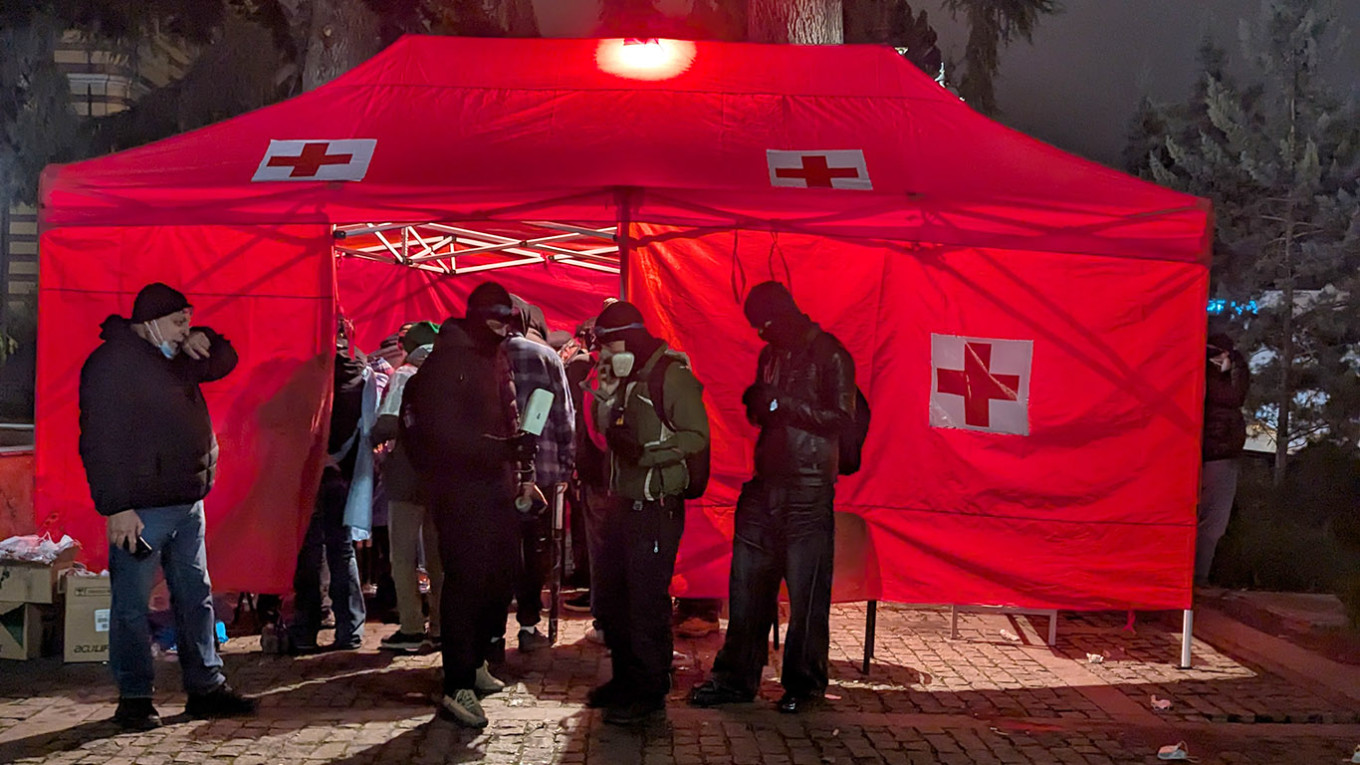
The Kremlin, for its part, appears to be taking a wait-and-watch stance toward the events in its southern neighbor.
“We did not intervene and have no intention of intervening in these processes,” Kremlin spokesman Dmitry Peskov told reporters on Monday.
“However, there is clearly an attempt to stir up the situation. We have seen similar events in a number of countries,” he added, drawing parallels between the rallies in Georgia and Ukraine's 2013-2014 Maidan revolution.
The protests have also had an impact on Russian nationals who live in Georgia, many of whom moved here because they disagreed with the Kremlin and its invasion of Ukraine.
Although there is no exact data on how many Russians protested, a Moscow Times reporter saw several Russians taking part in the rallies in Tbilisi. Some of them also volunteered to help distribute hot tea and soup to the protesters.
“Everyone thanked them,” Salome said, referring to the possible hostility with which some young Georgians perceive Russians. “They've already lost one country and they can help this one.”
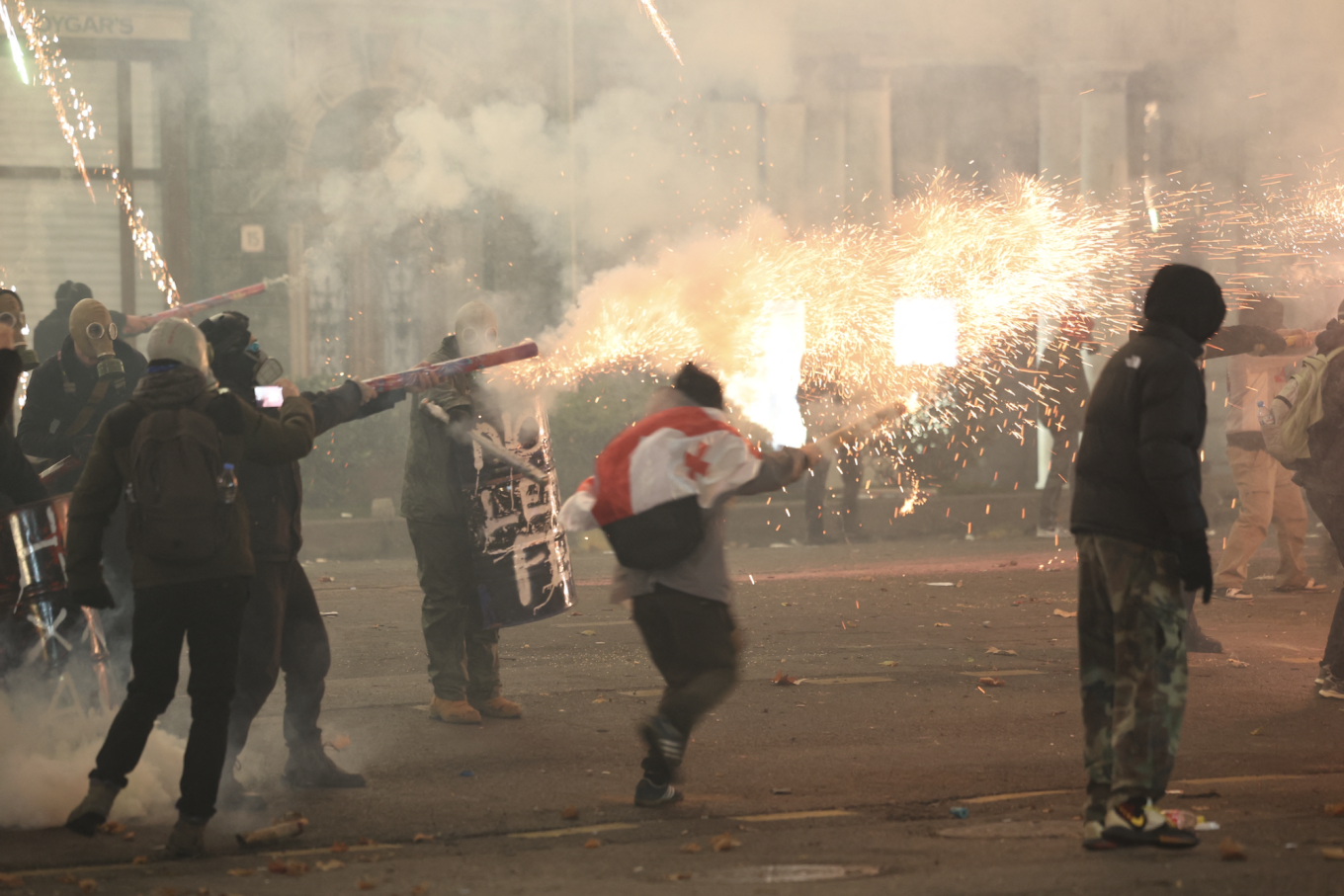
At least eight people were detained in the first three days of the protests, two of whom were later reportedly arrested for 10 and 13 days. At least two Russians were summoned to the police migration department for court hearings.
One Russian who was detained at the protests in Tbilisi was reportedly deported to neighboring Armenia.
Six days since the start of nationwide mass rallies, Georgia’s fate remains unclear.
Pro-European Georgian President Salome Zurabishvili has supported the protests and called for fresh parliamentary elections following the disputed vote.
But the Georgian Constitutional Court dismissed Tuesday a lawsuit from Zurabishvili and opposition groups seeking to annul the election outcome. The verdict was delivered shortly after Georgian Dream pledged to take punitive measures against its opponents.
With more demonstrations already planned for Wednesday, protesters say they remain determined to continue.
“It’s painful to admit, but if Georgian Dream manages to suppress the Georgian people — which I hardly believe [will happen] — the outcome will likely be similar to that in Russia — repressions and a crackdown on the population,” said Sonya, 21, an ethnic Georgian who moved to Tbilisi from Russia.
“But I believe that Georgians will manage to reclaim their freedom.”
A Message from The Moscow Times:
Dear readers,
We are facing unprecedented challenges. Russia's Prosecutor General's Office has designated The Moscow Times as an "undesirable" organization, criminalizing our work and putting our staff at risk of prosecution. This follows our earlier unjust labeling as a "foreign agent."
These actions are direct attempts to silence independent journalism in Russia. The authorities claim our work "discredits the decisions of the Russian leadership." We see things differently: we strive to provide accurate, unbiased reporting on Russia.
We, the journalists of The Moscow Times, refuse to be silenced. But to continue our work, we need your help.
Your support, no matter how small, makes a world of difference. If you can, please support us monthly starting from just $2. It's quick to set up, and every contribution makes a significant impact.
By supporting The Moscow Times, you're defending open, independent journalism in the face of repression. Thank you for standing with us.
Remind me later.



